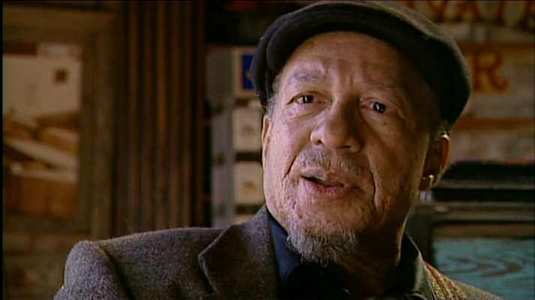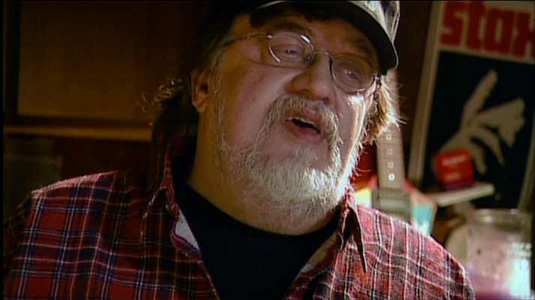Review of Road To Memphis, The
Introduction
This is one of seven films that comprise the complete: `Martin Scorsese Presents The Blues: A Musical Journey`. It was an interesting concept. Scorsese initiated and curated the project, and indeed Directed one of the movies. But he also gave six other Directors a set of DV-Cams, a limited budget for archive material and post-production - and carte blanche to go discover the blues for themselves. "Our goal was never to produce a definitive work on the blues. It was to create highly personal and impressionistic films," states Martin Scorcese. Released here and in the US as either individual movies, or as a deluxe box set comprising all 7 DVD`s that each include the movie and a variety of compelling extras. There`s been a lot of interest in these releases since they first aired in the USA (on PBS - the channel for culture-vultures) in 2003 and between them they contain a veritable treasure trove of information, passion and atmosphere that will thrill blues fans.
Richard Pearce (Heartland, Long Walk Home, No Mercy, A Family Thing etc) takes a classic cinema verite approach to his contribution, `Road to Memphis`.
Not only directing, but also operating the camera himself (he has great track record here having handled one of the key cameras that captured `Woodstock` for example), what we get is literally what he gets. It`s raw and ragged, and yet intimately compelling viewing. As he states in the interview also contained in the disc, "You can`t make mistakes with cinema verite, unless you admit they`re mistakes."
The film kicks off on the road with little known blues and soul man, the 49-year-old Bobby Rush. Bobby does something in the region of 300 shows a year, travelling in one of his three touring buses with his entire band and entourage, playing the same circuit (The Chitlin Circuit as legend now has it) of blues joints across the Delta that Howlin` Wolf, BB King and Ike Turner had taken in their early years. Pearce does well to capture the warmth and atmosphere of these performances, where appreciative but small audiences throw themselves into the music with as much vigour as Bobby himself. From a sofa in UK suburbia, this feels like another world - and it makes for great viewing.
The film has no narration, just captions and chapter headings, interviews and fly on the wall footage, archive music, archive pictures and archive footage. Its` a classic documentary mix but works extremely well because the subject matter is so entertaining. The editing is easy and rough (the jump cuts are startling; we`re so used to cutaways over the joins here) but they add to the pervading sense of authenticity. And of course there`s the ever-pulsating primeval thud of pure blues throughout.
The movie inevitably ends up on Beale Street, Memphis, once a hoppin` fun spot for blacks only- but now a blues ridden tourist centre that maximises the commercial potential of it`s history. We join Rosco Gordon, a star of the early `50`s who faded due to the advent of Rock `n Roll, and spent 20 years in a New York dry cleaners before interest in his work encouraged him back on the boards. His infectious smile, and easygoing manner make him the perfect host for a tour of Memphis. Other treats in store are joining BB King in his limo, and aboard his tour bus as he comes home to Memphis for a special `Blues Star` festival. His live performances are mesmerising, despite the aged singer`s inability to stand up, and every note from Lucille (his famous guitar) brings out fresh and passionate facial distortions, a trademark mimicked by budding lead guitarists the world over. His visit to WDIA, the first black music station in America, is great and his anecdotes about his earliest years are of great interest. Rufus Thomas is an entertaining raconteur too. His recollections infer that it was sheer commercialism that inspired the white owners of WDIA to allow the station to `go black`. "They found out that there was gold in them thar hills!"
Another highlight is Ike Turner (yes, he of Ike and Tina Turner infamy) visiting Sun studios to meet up with a weird and eccentric Sam Phillips, most famous for being the first to record Elvis Presley. There`s some real tension as Ike infers that Sam `stole the black man`s music` when he all but invented Rock ` n Roll and it really hits a paranoiac nerve creating an on-screen tension that most movie Directors would kill for.
There`s also vintage footage of Howlin` Wolf, BB King, Rosco Gordon and Ike Turner that ensure that we appreciate why Memphis is a pivotal part of the rich American history of the blues.

Video
The images are variable throughout, but this is the down and dirty blues and the film holds together well in the context.

Audio
The audio here is fine with options for stereo or 5.1 surround sound which is preferable for a really intimate feel.

Features
The disc is rich with the kind of extras that make it a real candidate for repeat viewings and therefore, good value for money. First up are `The songs from the film` in their entirety. These include several BB King numbers that are worth the price of the disc alone (The Thrill is Gone, 3`Oclock Blues, Nobody Loves me but my Mother). Also included is an Ike Turner and Rosco Gordon track, a couple of entertaining Bobby Rush numbers and some gospel blues from Reverend Charles E. Polk and the St. Luther Choir.
Then there are some exclusive bonus tracks (not on the film) which include BB King, and a David Johansson (yes - he of New York Dolls fame) with Hubert Sumlin doing a lacklustre version of the Howlin` Wolf standard `Smokestack Lightnin``.
Also included are a Directors interview (good sound, home movie picture), which is quietly revealing, as well as a Director`s Biography and Filmography.
Pearce is likable but un-charismatic.
There are also chapter options, a trailer for the other movies in the series, as well as audio options and a couple of useful web-links.

Conclusion
Richard Pearce`s understated, gentle tour into the heart of the Delta to discover the blues first hand works extremely well. Using fly-on-the wall camerawork, with fantastic and intimate interviews with both major and minor players, this film really gets across the feel of the blues, whilst also providing much in the way of factual content. Of course the real star of the production is the music - and there`s plenty of it, provided by BB King, Rosco Gordon, Ike Turner, Howlin` Wolf and little known Bobby Rush. The extras ensure the discs longevity, providing a broad array of musical diversions that you`ll want to visit again and again. Thoroughly recommended!
Your Opinions and Comments
Be the first to post a comment!